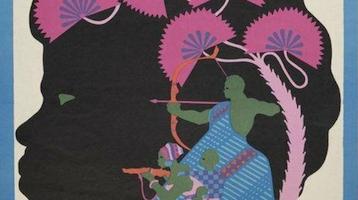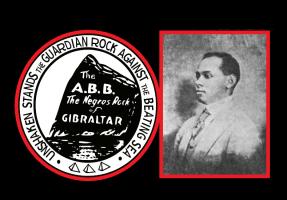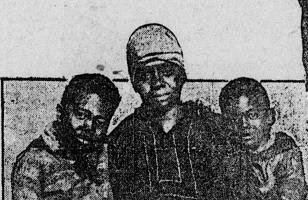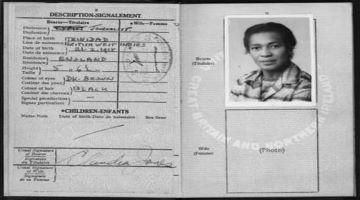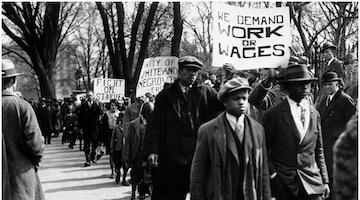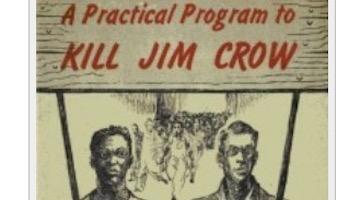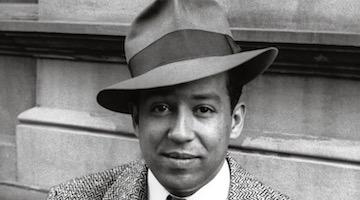Mrs. Ada Wright, mother of two of the “Scottsboro Boys,” traveled the world to advocate on their behalf. This essay is a remarkable testament to the unrewarded and unheralded labors of the Black mothers who have carried so many Black movements.
Often overlooked during Black Lives Matter’s tragic shuffle from grass-roots campaign to celebrity GoFundMe are those mothers of the sons and daughters whose murders sparked the movement in the first place. Figures such as Samaria Rice, Tamika Palmer, Gwen Carr, and Sybrina Fulton – the mothers of, respectively, Tamir Rice, Breonna Taylor, Erica Garner, and Trayvon Martin – were often marginalized during the most intense and potentially transformative days of the movement. But while they became symbols of Black grief, others benefited from their suffering, harvesting the corporate blood money and the high-dividend annuities from white liberal guilt that suddenly, and lucratively, became available to certain Black organizers. Unsurprisingly, such cynical transactions bankrupted the movement, economically, politically, and ethically.
The latter-day mothers of the movement have a historical predecessor and, one could argue, patron saint, in Ada Wright. Wright was the mother of Andy (19) and Roy Wright (12), two of the nine “Scottsboro Boys.” The Scottsboro boys were falsely accused of raping two white girls in Alabama in 1931 and railroaded to death row. Their case gained worldwide attention only because of an international campaign led by Black communist and attorney William L. Patterson’s International Labor Defense, which exposed the blatantly racist processes of the U.S. legal system.
Born in Alabama, Ada Wright became a central figure in the successful defense campaign. She went on a European speaking tour to draw attention to the plight of her sons and the other accused teenagers. While she was harassed, arrested, and imprisoned during the tour, it also enabled her to see the unity of Black oppression and alienation that linked, for instance, Alabama to the Congo—and to understand the imperial fraternity that conjoined the United States with Belgium in repressing and exploiting the working-class.
Wright appears on the cover of the 1932 special issue of Labor Defender, the journal of the International Labor Defense, dedicated to the Scottsboro campaign. Wright also contributed an essay titled “I Go to Jail for the Scottsboro Boys.” It recounts the trials and difficulties she faced in Europe, and her political awakening to the global struggles of working people. Reprinted below, Wright’s essay is a remarkable testament to the unrewarded and unheralded labors of the Black mothers who have carried so many Black movements.
I Go to Jail for the Scottsboro Boys
Ada Wright
I am willing to make every possible sacrifice to save my two boys, Roy and Andy, from death in the electric chair.
I am not strong. My health has been undermined by life-long and difficult toil. I have brought seven children into the world and did my best for them. I am now more than 46 years old.
It is, therefore, not possible for me to do as much as I would like to save the lives of my two children and the other Scottsboro boys.
I never dreamed that I had the strength to make a seven month’s tour of the United States and then to cross the Atlantic and for more than four months now to “carry on” in the European Scottsboro campaign.
There have been many difficulties. But my love for my two sons, the overwhelming desire and hope to see them free again, and very soon, with all the Scottsboro boys, with the growing desire, that I did not understand 17 months ago, to achieve something for my people and my class, have kept me strong. I grew to understand the police attacks upon our meetings. I could even understand my being expelled twice from Belgium, a country which tyrannizes over so many millions of my people in the Congo, in Africa.
But I didn’t think that they would ever send me to jail and to prison, — just for trying to save the lives of my two sons.
Yet I have just been in police stations, jails and prisons for three long days and endless nights, that seemed to me like the ages of horrible torture. I have never been in prison in my life, I never expected to be. I admit I have a fearful hour of police stations and jails.
Yes, I have been to prison in our struggle to save the Scottsboro boys. And, I will say now, that I am willing to go again, and for a longer time if it will help the cause in which so many millions of workers are struggling.
They arrest me at Klodno, in the coal fields. Near Prague, in Czecho-Slovakia I had never heard of Czecho-Slovakia, or of Prague, or Klodno, before they were included in our European Scottsboro tour. But the workers here were just like the workers that I saw in the twelve other countries I had visited. One woman comrade who greeted me at Klodno had been a delegate to the Amsterdam Anti-War Congress.
They told me that Klodno was the birthplace of Anthony J. Cermak, the Democratic mayor of Chicago. He had been to Klodno only a few weeks previously. He had been acclaimed by the government and feasted by its officials. I remember May Cermak’s police in Chicago murdered two of my people, shooting them down in the streets, during an unemployed demonstration against the eviction from their homes of some jobless Negro workers. I have heard much more about the police terror in Chicago.
That makes it easier for me to understand why I should be arrested by the friends of Chicago’s mayor in Klodno, over her in Czecho-Slovakia in Europe.
I was arrested before I ever spoke at or even reached the Klodno meeting. They dragged me off to the police station and tried to terrorize me into admitting that I was trying to carry on Communist propaganda. They tried to get me to say that I intended talking “politics,” and that I was trying to interfere with the local conditions in Klodno. I told them I didn’t know anything about conditions in Klodno, that I didn’t know enough yet to talk politics, and that I felt I didn’t know enough yet about Communism to be a good Communist.
At first they said they would release me after the meeting, which went on without me, was over. But they lied. They announced instead they would lock me up for the night. I demanded the right to go to a hotel and said I would pay for it with my own money.
This they refused me. It was one o’clock in the morning when they put me into a cell and locked me up.
Some of the comrades had remained close to me all this time. But they were forced at last to say, “Good Night!”
At that moment I never felt so much alone in all my life. I admit that I nearly broke down and cried.
But in that very same moment I resolved not to shed a single tear in any boss class jail or prison. And I didn’t although the two nights following were even worse than the first.
Sunday night I spent in the Prague police station fighting off the bugs and vermin. I shall never forget. And the next day, Labor Day in the United States, September 5, I was taken to the Fispann Prison where deportees are interned before being sent out of the country. Instead of releasing me, the interior minister, though his own paper, called me a “Bolshevik Negro Woman,” in big headlines, and “A Black Communist.”
But the women in the prison just loved me. I divided with them all the things the comrades brought me. The comrades gave me money to buy things to eat, whatever I needed, but the prison officials got their hands on the money and kept it.
So on the fourth day they sent me out of the country with Comrade Engdahl, declaring we were “undesirable foreigners.”
Going to prison for the first time has started me thinking about many things.
The police accompanied us on the train as far as the Austrian border to see that we were safely out of the country.
The Austrian comrades greeted us on our arrival at Vienna and began arranging meetings to take the place of those denied us in Czecho-Slovakia.
And I see that the newspapers everywhere are discussing the actions of the Czecho-Slovakian government and the Scottsboro campaign. Perhaps I did not go to prison in vain.
Ada Wright, “I Go to Jail for the Scottsboro Boys,” Labor Defender, October, 1932.



